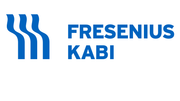Key points
• Some patients (Jehovah's Witnesses, for example) refuse blood transfusions due to their religious convictions.
• It will be extremely difficult for the surgical and anaesthetic teams to do major surgery without using blood. Patients who refuse blood or blood products should be informed of all of their options.
• Avoid unnecessary large volume blood samples
• Plan optimal anaesthetic approach
• Consider cell salvage if feasible/appropriate
• Consider surgical options aimed at minimising blood loss
• Optimise patients prior to surgery (anaemia management)
Rationale
A thorough Health Care Advance Directive (Living Will) is frequently executed by JW, and many of them carry an "advance directive" that forbids blood transfusions.
Links to resources (where available)
Key points
• Blood supply issues – risk of blood shortages
• Plan contingency local guidelines – staff/product
• Priority/patient priority
Rationale
During prolonged extreme shortages, blood centres and transfusion services must alter practices to meet the needs of patients. [refer to local guidelines where available]
Key points
Patient blood management
• Evidence-based, multidisciplinary approach to caring for patients who might need a blood transfusion
• Encompasses all aspects of the transfusion decision-making process, beginning with the initial patient evaluation and continuing through clinical management.
• Aim is for optimal patient outcomes, while maintaining the blood supply to guarantee that blood components are available for patients when they are needed.
Rationale
For the learner to better understand both the decision to transfuse and the alternatives (where available locally).
The urgent need to implement patient blood management: policy brief (who.int)
Patient Blood Management (aabb.org)
BloodSafe eLearning Australia (bloodsafelearning.org.au)
Patient Blood Management Guidelines | National Blood Authority
Patient Blood Management Resources | The International Society of Blood Transfusion (ISBT) (isbtweb.org)
Chapters
Essentials of blood transfusion teaching feedback questionnaire
How can we improve? We value your feedback!















